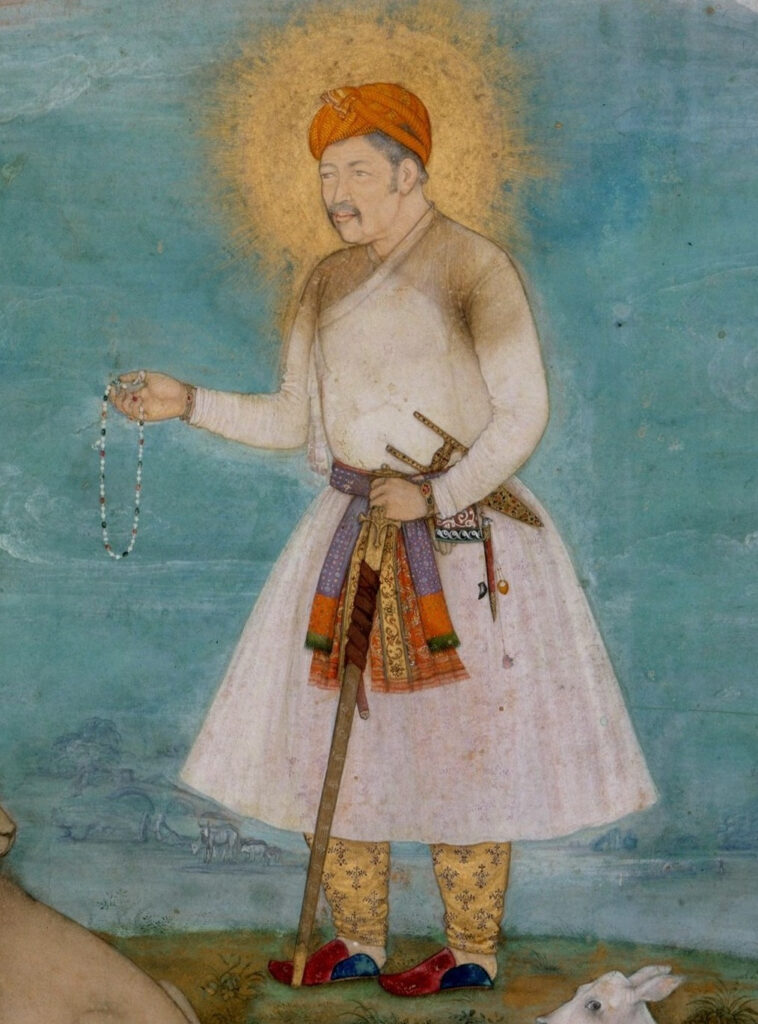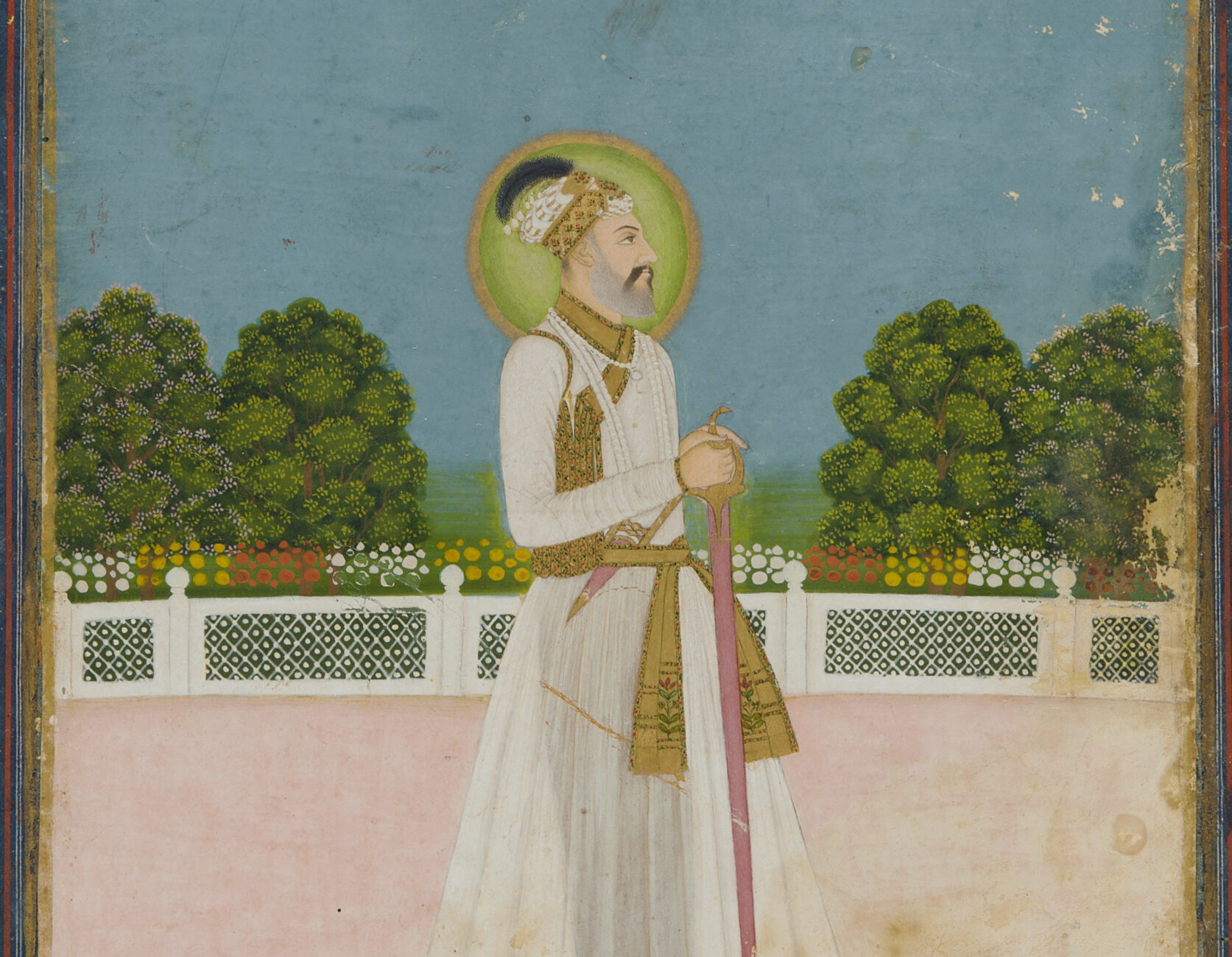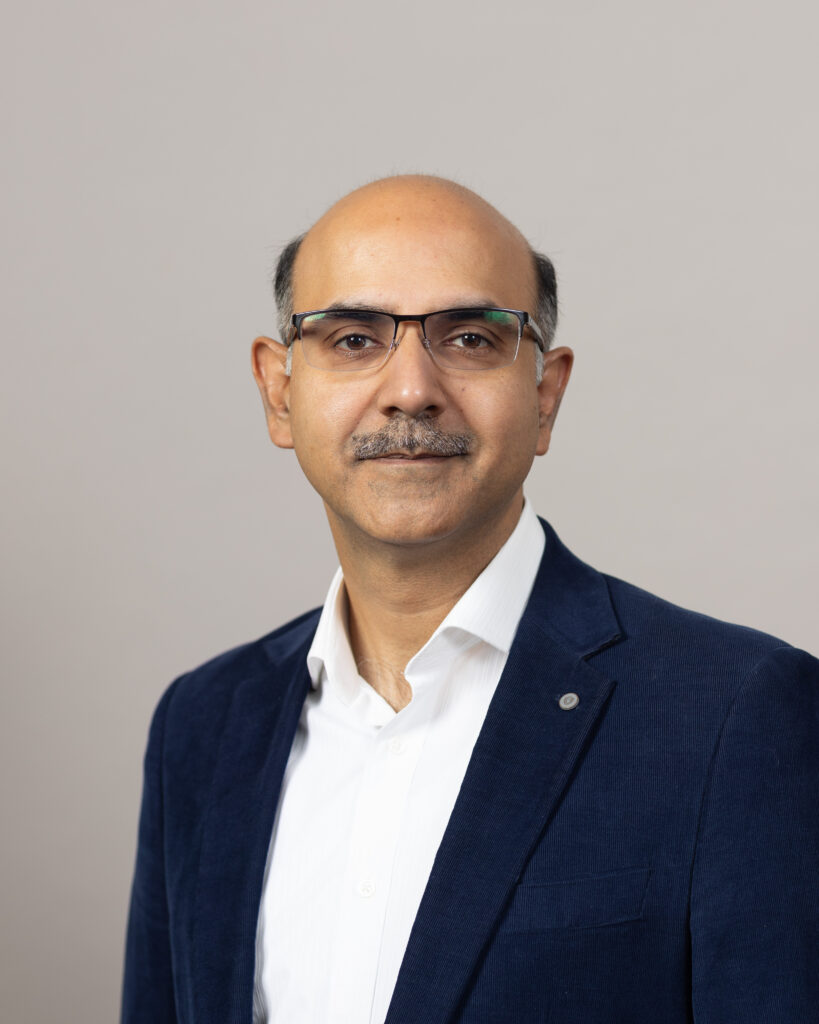Azfar Moin Locates the Roots of Secularism in the Sacred Kingship of Emperor Akbar
One doesn’t necessarily picture a religious studies professor as a trained computer engineer, but such is the background of Azfar Moin — a creative, outside-the-box thinker and chair of the Department of Religious Studies at UT. If you ask him, the path toward his current career makes perfect sense.
Moin grew up in a liberal family in Pakistan in the 1980s and saw society and the state change around him as a particularly harsh, puritanical form of Islam spread under General Mahammad Zia-ul-Haq’s presidency. The military dictatorship used religion to legitimize itself and further entrench its power. It hardened blasphemy laws, reduced women’s legal rights, and used religion as a litmus test criterion for public appointment, among other policies.
“It impacted me growing up,” said Moin. “I always felt that I couldn’t explain what had happened in my own country, which really led to my desire to ask larger questions about the relationship between religion and politics.” Moin came to the U.S. for college and graduate school and went into software engineering, but eventually decided to quit his job and get a Ph.D. to explore these questions full-time.
Now, Moin researches the history of Islam and of monotheistic religions and how they evolved and adapted within polytheistic environments. He studies questions of pluralism — where several different groups of religions coexist under a government — and how religious differences that arise in pluralistic environments have historically been resolved by states. For example, most Muslims live in Asia (think Indonesia, Pakistan, Central Asia, India, Bangladesh), which was historically a non-monotheistic environment. As a result, there have always been fundamental differences to negotiate both within the populations’ belief systems and between the belief systems of the people and the religion of the state.
Fueled by his own childhood experience of the shift from secular politics to religious nationalism, Moin pioneered a radical alternative narrative about the origins of religious freedom — and they aren’t in the French Revolution or the Enlightenment where you might think. Instead, Moin argues, we should look back to second largest empire of the early modern world, the Mughal dynasty, and to the religious history of Muslim Asia.
At the height of his power at the end of the 16th century, the Mughal emperor Akbar made an extremely unusual move for the premodern world and decided to abandon Islam as a state religion. “A king abandoning the religion of his birth would have been unimaginable in Christian Europe or the Ottoman empire or other parts of the Muslim world, and here was one of the most powerful emperors of all time doing this,” said Moin. “That question of ‘Why?’ became central for me.”
Akbar’s challenge was to resolve the tension between monotheistic Islam, which does not formally recognize non-monotheistic religions, and the need to effectively manage a diverse empire incorporating a wide range of cultures and beliefs. Akbar did something novel. As opposed to secularizing the state, he sacralized himself — declaring his body as mostsacred, above the distinctions of religion — in the interest of creating peace and equality among all religions in his realm. Thus Moin uses the concept of “sacred kingship.” (It should be noted here that in Persian the words for king and emperor are interchangeable.)

But this strategy came at a price to the emperor’s reputation. “The idea of the Muslim king becoming divinized created a huge controversy, since sacred kingship is anathema from an Islamic, biblical, or monotheistic perspective,” said Moin.
Most previous scholarship on Akbar has framed this move as entailing the creation of a new religion, but Moin argues that he was not trying to create religion but rather to raise the state above religion. In other words, it was a profound move toward state-supported religious pluralism.
Moin was the first scholar to really frame the issue this way in his award-winning book, The Millenial Sovereign: Sacred Kingship and Sainthood in Islam. In his view, modern forms of secularism had the same aim as Akbar did; they just went about it in a different way by privatizing religion, separating it from the state, which we see in the history of Europe and the Americas. “It’s just a different way of establishing state-supported religious pluralism,” he said. “It’s the same thing the French revolutionaries were trying to do by burning down the church!” he chuckled.
Moin’s current research takes this theory even further back in time to the age of Genghis Khan — who Moin says never considered himself bound by any religion — arguing that the imperial framework that the Mughals used traced back to the Mongols, who said they would protect all religions in their vast Asian empire. This also made sense for the Mughal’s pluralistic society in India.
So why does Moin think this framework is so innovative, given that it seems relatively logical? “Because of problems with how we study history and religion in the Western academy,” he said. “We limit ourselves by geographical area or by religious tradition. We also leave out large-scale phenomena — such as Mongol conquests — which don’t fit into our conception of “area studies” or historical specialization. We inherit these boundaries when we get our Ph.Ds. It takes some gumption and daring to break out.”
But Moin dared, and in doing so formed a pretty innovative view of how religion should be studied and taught. His willingness to look beyond inherited boundaries has also helped him lead his department, which supports a vast swath of research and academic production. It focuses, for example, on topics from early Christian origins (including helping the Ransom Center to acquire a third century gospel fragment found by associate professors Geoff Smith), to the rise of Pentecostalism in the Caribbean (which includes hosting a bilingual conference on Haiti), to reaches as far as alien contact (which, if you ask Moin, is about the study of “extraordinary” reality, just like religion), to the study of secularism and its implications for religion and politics.
“We need to study all religious phenomena,” Moin said. “We’re not interested in theology, which is what a seminary or divinity school would study, but rather in using an approach that is anthropological and sociological.”
It’s this approach, Moin explains, that allows us to use the lens of religion to ask hard questions and to understand the world and contemporary politics. Moin posits that politics, too, can be ordinary, or they can be charismatic, just like religion. Think about what, in the study of politics, we might call conspiracy theories, or personality cults. To properly understand them, it helps to look, for instance, to the development of early Christianity and to the charismatic and messianic-type movements in some Native American religions, particularly at times when people could see their societies threatened and their ways of life coming to an end.
“Sometimes you can only explain these things through a religious studies lens,” said Moin. “You can’t study these things from a purely detached perspective. You have to be able to enter into the imaginations of the people who are experiencing events of existential significance. That imagination is what we call religion.”
Moin notes that he isn’t the only person in his department whose study of religion is at least in part in reaction to the religious culture in which he was raised. Several of his colleagues are the children of pastors and priests. He chuckles again: “It’s surprising how many people who grew up in religious households decide to study it from a more scholarly position. I sometimes joke that we should call ourselves the Department of Pagans, Atheists, and Infidels.”
For Moin, the rewards of the department’s approach come in the form of a successful Ph.D. program and a vibrant intellectual environment.
“We are trying to teach how religion is at the core of the major conundrums of humanity. Anyone who follows the news needs to realize that if we don’t understand how religion works, we’re shortchanging ourselves,” Moin said. “Here I am, an engineer who gave up his career, because I really felt that I didn’t understand how this world works, and now I have a lens through which I can make sense of it. I would never go back to my old career. My life is so much more fulfilling and fun now.”

